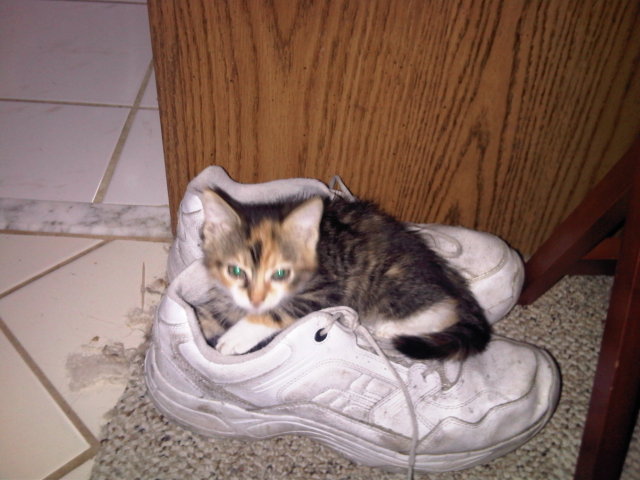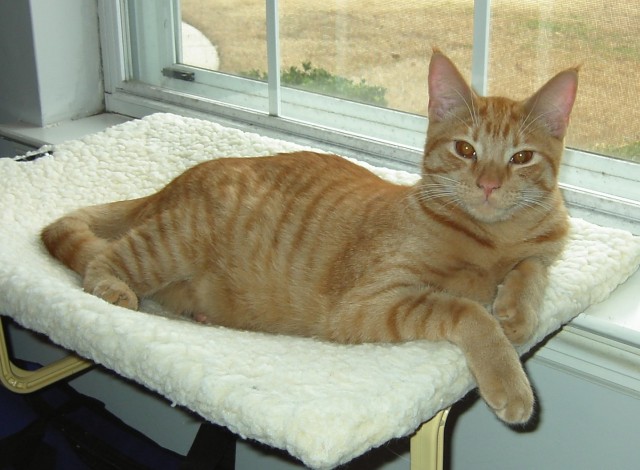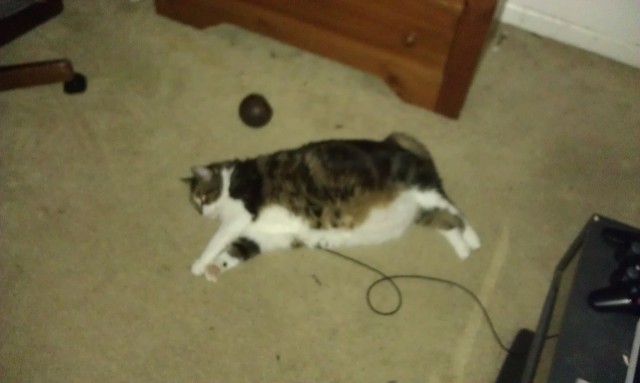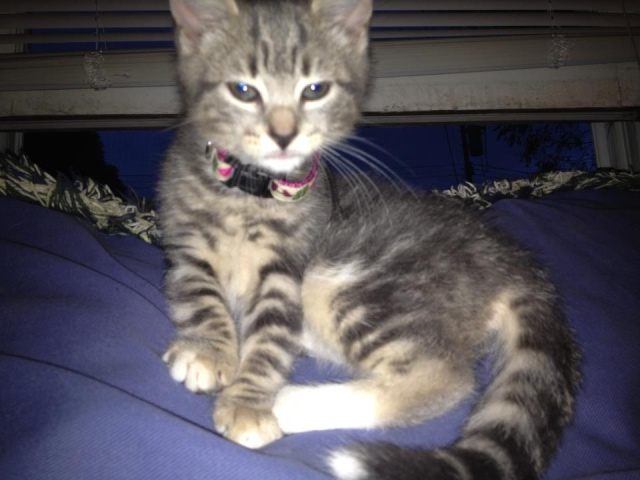QuestionQUESTION: My cat had kittens about a week before Christmas. 3 days ago, one of the kittens had vomitted a few times that day. The mother cat was very caring and protective of her during this time. The following day, the cat vomitted what looked like an intertwined mass of worms. The mother cat immediately came along and ate it. I have been reading tons about various types of worms found in cats, but did not come across anything about them being vomitted or in masses. The kitten is small of course and weighs maybe a pound. The mass that it vomitted was the size of my pinky finger. I thought it was rather large to come from such a small creature. The only way I can think to describe it is just as intertwined worms perhaps. I did precautionarily treat all of our cats (2 adults and 4 kittens) for roundworms, but I am wondering if this could even have been worms, or if it is most likely something else. I cannot afford to take the kitties to the vet right now. So, I was hoping to gain at least some insight as to what this might be in the meantime. My budget won't allow for a vet visit for at least 2 weeks yet. I feel bad having to wait, but I have no other choice. The other kittens in the litter seem to be fine. One did have a worm about 2 inches in length in it's feces (which prompted me to deworm). The kitten that had vomitted, has not vomitted again since the mass and deworming. I dewormed the same day as the mass vomit. I dewormed the rest of the cats and kittens this evening, since it was today that I saw the worm in the other kitten's feces. They all seem to be healthy and extremely playful, running around etc., but the one that was sick seems a little thinner and not as playful as often. She seems to be more sad, but it could also just be the personality. Any help is appreciated! Thanks!
ANSWER: Hi Mandy. You saw roundworms, I'm sure of it by your description. Especially when the worms are small, sometimes you'll see them vomited up as a tightly coiled lumped. By the time you see them coming up in vomit, their bellies are quite full of the critters, indeed. So I do think you are at a point where treating them is probably necessary to prevent malnutrition. Make sure to repeat the treatment in 2-3 weeks to kill worms that have matured since this treatment.
Did you happen to worm them with something piperazine-based? This is what most over-the-counter cat wormers are, and the rest of this answer will only apply if it was! While generally considered safe, I feel kittens are too sensitive to overdoses of this medication. I have also used it and found it upset my kitties' stomachs, and it wasn't a very effective treatment. And it seemed to leave them feeling depressed. An 8-week-old kitten given the proper dosage died, reported here: http://www.apvma.gov.au/qa/aer96.shtml
There are many other reports not recorded there, so I steer clear of piperazine products in favor of those containing pyrantel pamoate, as suggested by the District of Columbia Academy of Veterinary Medicine here - http://www.dcavm.org/06oct.html
Pyrantel pamoate is what vets will usually use to treat roundworms. You can get it online as Nemex 2 for puppies. Of course it's usually a very bad idea to use a puppy product on a kitten, but this is one case where it's okay. Here's an article to back me up. The dosage on the package (for puppies) would apply to kittens.
http://www.petplace.com/drug-library/pyrantel-pamoate-nemex-strongid-t/page1.asp
---------- FOLLOW-UP ----------
QUESTION: Thank you so much for the thorough answer.
I am worried now as I have indeed used piperazine based products to treat the cats. I had used this same product previously on the mother cat with no issues, but of course kittens are more fragile. I am going to purchase a product containing the ingredient you mentioned. I found it available online. I am just wondering, since you said it was safe for the kittens, do I follow the exact directions it lists for puppies and about how long should I wait to use this product? All of the cats have been treated within the past 2 days now. The directions for puppies states to repeat dosage roughly every 2 weeks until the puppy reaches six months of age.. should I follow that same guideline for the kittens? One more last thing; should I only use this on the kittens, or would it be wise to treat my 2 adult cats as well?
Again, thanks so much for the quick response and detailed answer to my original question. I really appreciate it.
AnswerHello again. I don't mean to freak you out, if they're okay two days later, then the kittens should be fine. I just personally wouldn't risk a second treatment. I would wait two weeks from the piperazine treatment and then use the pyrantel treatment.
The kittens should be treated with the pyrantel for at least two doses, two weeks apart (preferably three doses, each two weeks apart). I would treat all the adult cats as well, on the same schedule. Certainly treat mom, since roundworm larvae can actually pass to the babies in her breastmilk. This would get rid of the current roundworm infection, and treatment wouldn't need to continue for six months (typically this is done with puppies who are in the bad habit of eating feces). But the dosage would be the same for the weight.
The trouble with roundworms is that in favorable conditions, their eggs are actually viable in the environment for 2 years, perhaps even longer! And they have a sticky coating that makes them cling to flooring, etc. If the kitties happen to come in contact with one of these stray eggs and swallow it, then a NEW roundworm infection could occur. Or if any of the cats go outdoors, then they are certainly exposed to roundworms every day in the soil and through prey. Washing bedding in hot water and cleaning hard flooring and litter boxes with bleach may help minimize risk of reinfection.
Generally, you would want to treat the cats again if you started seeing worms in vomit or feces, or if you begin seeing a lot of frothy vomit or unexplained diarrhea. Or if your cats are at high risk for contracting roundworms (outdoor cats), many will treat as a precautionary measure with the usual dosage every 3-4 months.
Just FYI, Nemex is supposed to be palatable for puppies, but none of my cats have ever taken it mixed in food, so you will probably have to give it in a syringe. It is rather voluminous - the more concentrated pyrantel suspensions are only available by prescription. But given slowly, they should be fine. There is always some risk using any medication, but I have never had a single bad reaction to pyrantel with any of my cats. And I can't help but feel like if it was superior, vets would be using piperazine instead.
Good luck with your little ones! Hope they're all feeling better soon!

 Kitten not eating
Question
Tiny
I have a 10 week old female kitten
Kitten not eating
Question
Tiny
I have a 10 week old female kitten
 Treating cat dominance/aggression with prozac
QuestionI adopted a 3-year old male from the shelter th
Treating cat dominance/aggression with prozac
QuestionI adopted a 3-year old male from the shelter th
 Lost Cat questions
QuestionRusty
QUESTION: Ali,
My new
Lost Cat questions
QuestionRusty
QUESTION: Ali,
My new
 what type of cat is mine?
Question
zella
Ok this cat is very big one of bi
what type of cat is mine?
Question
zella
Ok this cat is very big one of bi
 Trimming (crazy) Kittens Claws
Question
tigerlily
I need to trim my kittens nai
Trimming (crazy) Kittens Claws
Question
tigerlily
I need to trim my kittens nai